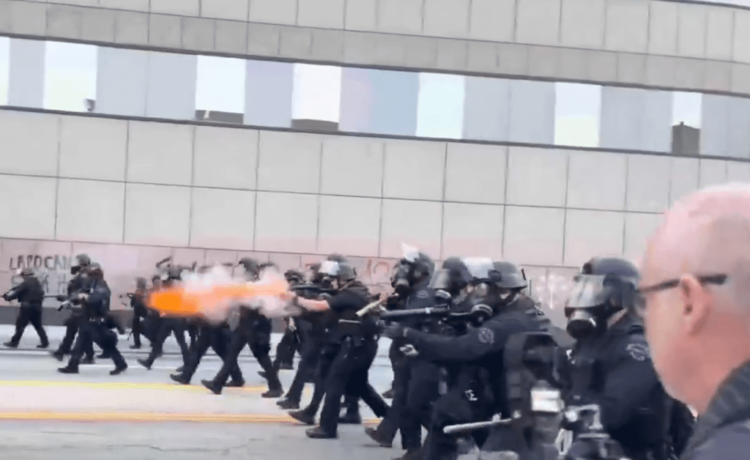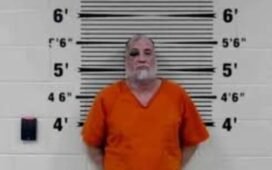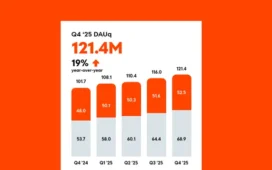
 In the 1975 film Posse, Amsterdam, NY native Kirk Douglas (who directed the film) plays an unscrupulous U.S. Marshal running for U.S. Senate who leads an elite posse in pursuit of a gunslinger to further his political career. In the final scenes the posse has to reassess whose side they are really on. The echos of recent events are uncanny.
In the 1975 film Posse, Amsterdam, NY native Kirk Douglas (who directed the film) plays an unscrupulous U.S. Marshal running for U.S. Senate who leads an elite posse in pursuit of a gunslinger to further his political career. In the final scenes the posse has to reassess whose side they are really on. The echos of recent events are uncanny.
The word posse is a shorted form of posse comitatus meaning “power of the county.” It refers to the power of local officials to grant policing authority to local people to assist in criminal justice activities. It’s a powerful authority, easily manipulated by unscrupulous actors and has been frequently abused throughout American history by local (and a few times national) officials, especially to racially target minorities.
The Ku Klux Klan was one of the many beneficiaries of the powers to deputize white citizens against people of color. This history is one of the origins of the common anti-racist policing phrase “the cops and Klan, go hand in hand.” Or as Rage Against the Machine put it, “some of those that work forces, are the same that burn crosses.”
Rage’s reference was targeted at the Los Angles Police Department. The LAPD was notoriously racist well into in the second half of the 20th century; today, the department’s officers are 49% Hispanic.
Posse Comitatus Act Abuse
Posse Comitatus Act, passed in 1878, was largely a right-wing reactionary response to Reconstruction after the Civil War, when the military was used to guarantee the voting rights of African-Americans in the South. It limits the use of federal military personnel for civilian law enforcement, especially using the power of the US President to bring the military to bear on Americans.

 The disputed presidential election of 1876 and the resulting Compromise of 1877 ended Reconstruction and allowed Congressional representatives from the former Confederate States to retake their seats. They then prioritized the prohibition of federal government control over their states.
The disputed presidential election of 1876 and the resulting Compromise of 1877 ended Reconstruction and allowed Congressional representatives from the former Confederate States to retake their seats. They then prioritized the prohibition of federal government control over their states.
During the economic disaster following the Panic of 1873, President Rutherford B. Hayes‘ use of federal troops to suppress the Great Railroad Strike of 1877 engendered sufficient congressional support from both North and South for the Posse Comitatus Act. It was updated in 1956, 1981, and 1921, and includes just one sentence:
“Whoever, except in cases and under circumstances expressly authorized by the Constitution or Act of Congress, willfully uses any part of the Army or the Air Force as a posse comitatus or otherwise to execute the laws shall be fined under this title or imprisoned not more than two years, or both.”
“The Posse Comitatus Act bars federal troops from participating in civilian law enforcement except when expressly authorized by law,” wrote NYU’s Brennan Center for Justice’s Joseph Lunn in 2021. “This 143-year-old law embodies an American tradition that sees military interference in civilian affairs as a threat to both democracy and personal liberty.”
“Despite the ignominious origins of the law itself, the broader principle that the military should not be allowed to interfere in the affairs of civilian government is a core American value,” says Lunn.
“It finds expression in the Constitution’s division of power over the military between Congress and the president, and in the guarantees of the Third, Fourth, Fifth, and Sixth Amendments, which were in part reactions to abuses committed by the British army against American colonists.”
“Events in 2020 and 2021 have highlighted two loopholes in the Posse Comitatus Act,” Lunn continues. “The first involves the District of Columbia National Guard. Unlike all other state and territorial National Guards, the DC Guard is always under presidential control. Despite this, the Department of Justice has for years asserted that the DC Guard can operate in a non-federal, ‘militia’ status, in which it is not covered by the Posse Comitatus Act. By this interpretation, presidents can use the DC Guard for law enforcement whenever they choose.
“Another weakness in the Posse Comitatus Act arises from the law that allows the National Guard to operate in ‘Title 32 status.’ In Title 32 status, a middle ground between purely state operations and federalization, Guard personnel are paid with federal funds and may perform missions requested by the president, but they remain under state command and control. That means they are not subject to the Posse Comitatus Act, even though they are serving federal interests.
“In the summer of 2020, President Trump deployed the DC National Guard into Washington to police mostly peaceful protests against law enforcement brutality and racism. Simultaneously, over the objections of DC’s mayor, the administration asked state governors to deploy their own Guard personnel into Washington in Title 32 status, and 11 governors did so.
“Although these out-of-state forces were nominally under their governors’ control, it was later revealed that they were reporting up through the DC Guard’s chain of command for “coordination” purposes. That meant they were ultimately taking orders from the president.
“In this way, the Trump administration brought a large, federally controlled military force into Washington and used it for civilian law enforcement, all while skipping over the procedures in the Insurrection Act and evading the political costs of invoking it. That is exactly what the Posse Comitatus Act is meant to prevent.
“Moreover, the deployment of non-federalized, out-of-state Guard forces into a jurisdiction without its consent represents another threat to the Posse Comitatus Act. When operating in Title 32 status, Guard forces are exempt from the Posse Comitatus Act because they are under state command and control.
“A key part of that control is the governor’s right to decline a particular federal mission. That right is meaningless if the president can simply approach a different governor and ask her to deploy her state’s Guard into the unwilling governor’s state. In this scenario, the cooperating governor becomes a fig leaf for the president to use the military as a police force anywhere in the country, free from the constraints of the Posse Comitatus Act.”
Impacts Today
On Sunday, about the time Donald Trump was attending a UFC fight, he declared a “national emergency” and ordered 2,000 National Guardsman to Los Angeles to suppress what was a small protest against rounding-up Americans without notice, warrants, or providing due process.
Also yesterday, the LAPD issued a press release saying in part:

 “Today, demonstrations across the City of Los Angeles remained peaceful, and we commend all those who exercised their First Amendment rights responsibly. The Los Angeles Police Department appreciates the cooperation of organizers, participants, and community partners who helped ensure public safety throughout the day.
“Today, demonstrations across the City of Los Angeles remained peaceful, and we commend all those who exercised their First Amendment rights responsibly. The Los Angeles Police Department appreciates the cooperation of organizers, participants, and community partners who helped ensure public safety throughout the day.
“While today’s events concluded without incident, the Los Angeles Police Department remains fully prepared to respond swiftly and appropriately to any potential acts of civil unrest. Our commitment to safeguarding the rights, safety, and well-being of all Angelenos continues – day and night.”
California Governor Gavin Newsom issued the following statement:
“The federal government is taking over the California National Guard and deploying 2,000 soldiers in Los Angeles — not because there is a shortage of law enforcement, but because they want a spectacle.”
Although his odds are good, Newsom is gambling with his freedom. During his campaign last fall, Trump said he would “unilaterally send troops into Democratic-run cities.”
In May acting director of the U.S. Immigration and Customs Enforcement (ICE) Tom Homan (a native of Jefferson County, NY) was asked “why not arrest ‘sanctuary city’ leaders?” His answer: “wait and see what’s coming.”
Since then, a New Jersey Congresswoman and a Wisconsin Judge have been arrested. Today, he said California’s governor and the mayor of Los Angeles could as well, if he so chooses.
Given the illiberal regime now in control of the United States, it’s reasonable to assume New York State could be the next target. Kirk Douglas’ character in Posse would approve.
New York Almanack is reporting on the Trump regime’s impacts in New York State, but we can’t do it without your help. Please support this work.
Illustrations, from above: An LAPD skirmish line fires on protesters on June 7, 2025; a detail from an image of Maryland National Guard shooting into a crowd of protestors in Baltimore on July 20, 1877 (Harpers Weekly, August 11, 1877); and unhinged near midnight social media message from Donald Trump claiming the National Guard was already involved (they weren’t), calling the Governor of California Newscum; and claiming masks will not be allowed at future protests.








Recent Comments